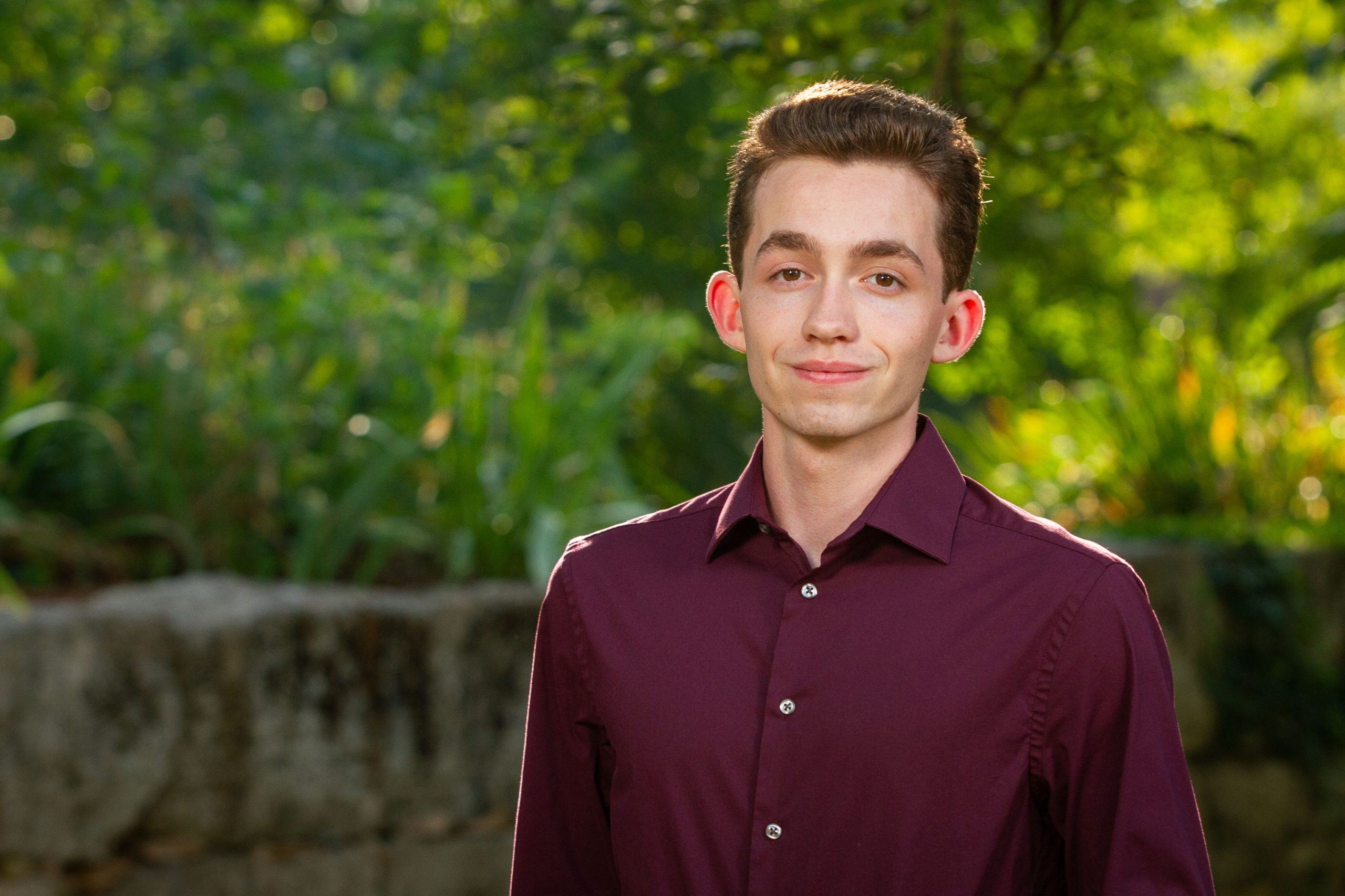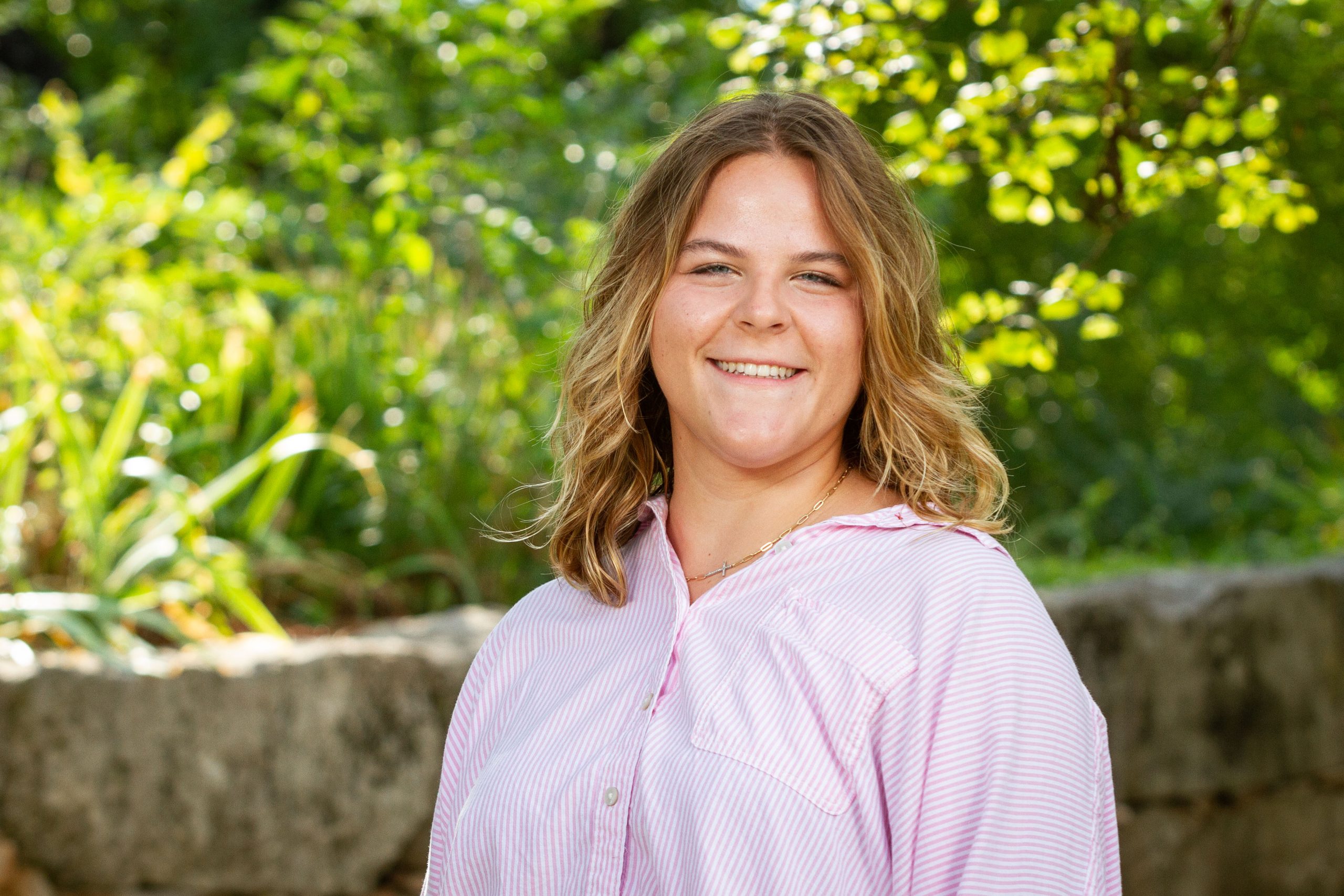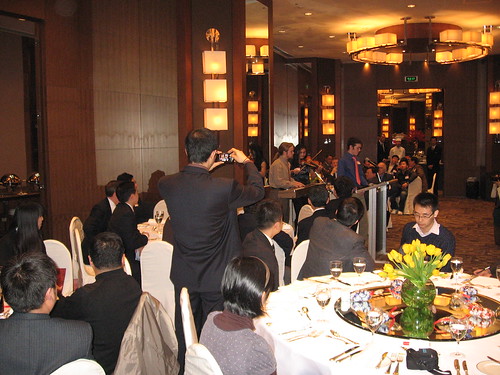Nine Students Share Research through “Posters” Event
February 12, 2010 | Academics, News, People, Research, WKU | No Comments

Nine Gatton Academy of Mathematics and Science in Kentucky students were among hundreds of undergraduates from across the Commonwealth who presented their academic research at Posters at the Capitol 2010 on January 28 in Frankfort.
Posters at the Capitol is an event held during the legislative session where students from Kentucky’s eight public universities and the community and technical college system share research findings with the state’s legislators and decision makers.
A key feature of Posters at the Capitol is the chance for students to talk one-on-one with their state representatives and senators about the value of research at the undergraduate level.
Thomas Choate (Warren ’10) believes it is extremely important for legislators to realize the role these emerging thinkers and industry leaders will play in the future of the state and it’s economy.
“As a Gatton Academy student and an undergraduate researcher, it is imperative to ensure the support of state legislators by demonstrating that undergraduate involvement in research at Kentucky’s post-secondary institutions holds great potential for the state,” Choate said.
Second-year student Katie Rush (Franklin ’10) agrees: “As a student in a state-funded program, I think it is very important to show what you have learned to those who have made this opportunity available, to demonstrate that their efforts were well worth it,” she said.
In all, Gatton Academy students were able to meet with six of Kentucky’s senators and nine members of Kentucky’s House of Representatives to talk about the research work they have been able to conduct through Western Kentucky University’s Ogden College of Science and Engineering.
Held in the State Capitol’s Great Hall, nearly 200 students shared their research work this year. Research posters ranged across disciplines in both science and the humanities.
Jae Lee (Christian ’10), who presented with three of his lab partners, commented that his experience was equally exciting and education. “Not only was I grateful to see interest from lawmakers to our work, I also got to see a lot of intriguing and advanced research projects from other students,” he said. “Moreover, it was great to hear positive feed-back and encouragement from the legislators and senators.”

The Gatton Academy not only challenges students to perform research at the undergraduate level but also encourages them to share the knowledge they discover with academic peers across the state and country. To date, Gatton Academy students have also presented at the Kentucky Academy of Sciences annual meeting, the Women in Physics national conference, and the Argonne National Laboratory Research Conference during the 2009-10 academic year. Additionally, students will share research at the WKU Undergraduate Research Conference later this month.
“Presenting research is a chance to not only practice speaking and communication, but also to show your thorough knowledge of a subject and ability to answer difficult questions you’ve never been asked before,” Rush observed.
Now through its tenth year, Posters at the Capitol has become an annual destination for undergraduate researchers from across the state.
Gatton Academy participants and their research projects included:
Thomas Choate (Warren ’10) Using Sustainability Indicators to Guide Local City Growth
Clarice Esch (Pulaski ’11): Is Collema sp., a Gelatinous Lichen, a Sustainable Source of Nitrogen for Greenhouse and Nursery Crop Production?
Victoria Gilkison (Anderson ’11) : Ecology of American Ginseng (Panax quinquefolius) at Mammoth Cave National Park and Justine Missik (Boyle ’11): Microbial Networks Create Pathway Proliferation in Marine Food Webs
Alexander Hare (Rowan ’10), Ben Neal (Estill ’11), Jae Lee (Christian ’11) and Paul “P. J.” Kasinski (Boone ’11): Genomic Comparison of C. scatologenes to M. thermoacetica
Katherine Rush (Franklin ’10): Landfill Contaminant and Fluorescent Dye Interference Project
For more information, contact Derick Strode at 270-745-6565.






 At the program, junior Sarah Schrader (Warren ’11) was selected to give a speech in Chinese to represent the Gatton Academy. In Chinese, she introduced herself to the mostly Chinese audience, described the Gatton Academy, and talked about her experience in the Flagship Program.
At the program, junior Sarah Schrader (Warren ’11) was selected to give a speech in Chinese to represent the Gatton Academy. In Chinese, she introduced herself to the mostly Chinese audience, described the Gatton Academy, and talked about her experience in the Flagship Program.
/Personnel_Cabinet_files/cap_0048_sm.jpg)
